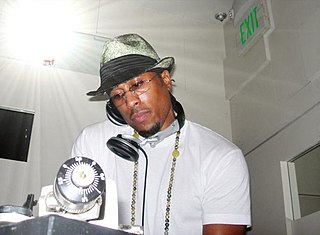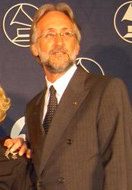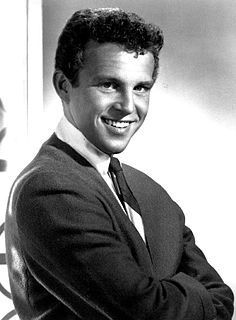A Quote by Ali Shaheed Muhammad
Our records are commodities. We're looking to make a sale. The radio stations are looking to get the advertising dollars. The end.
Quote Topics
Related Quotes
Because U.K. artists aren't compensated when their music is played on U.S. radio stations, U.S. artists aren't compensated when their records are played on U.K. stations based on the fact that there's no reciprocity. If that income came in, our artists would be paying income taxes on it. So if we can get a lot of policy on the radar, that may have some positive influence.
We are extremely proud to represent all of Radio One's stations within the Katz Radio Group. For the past five years we have worked diligently alongside Radio One to build their business in the markets we have historically represented including Houston, Los Angeles, Philadelphia , Raleigh and Columbus. At a time of significant growth in the African American consumer market the addition of the remaining Radio One stations expands our ability to deliver strategic marketing solutions to our agency and advertiser customers.
People don't like the music that's out now, that's on their radio stations, and they want to hear something different, but they're just the audience. You know, people will keep the TV on even if a show is on that they hate - because, unfortunately, they've been programmed to do that. [But] they are really looking for something that's gonna speak to the world that they're living in. That's what people are looking for, but they're not finding it.
Artists should re-emphasize performance and de-emphasize recording. You always make more money if you have a healthy performing life than you will if you have even a moderately healthy recording life. Don't make recording the most important thing you do. Make performing the most important thing you do, and then you can make recordings and sell them at your shows, because record labels aren't going to be around to help you get on the radio stations, and the radio stations probably aren't going to play you anyway.
The future of the church is also about looking back and looking at where we see these wonderful renewals and what we can learn from the early church. I think it is a really exciting time where Phyllis Tickle said every few hundred years the church needs a rummage sale where we can get rid of some of the clutter.




































